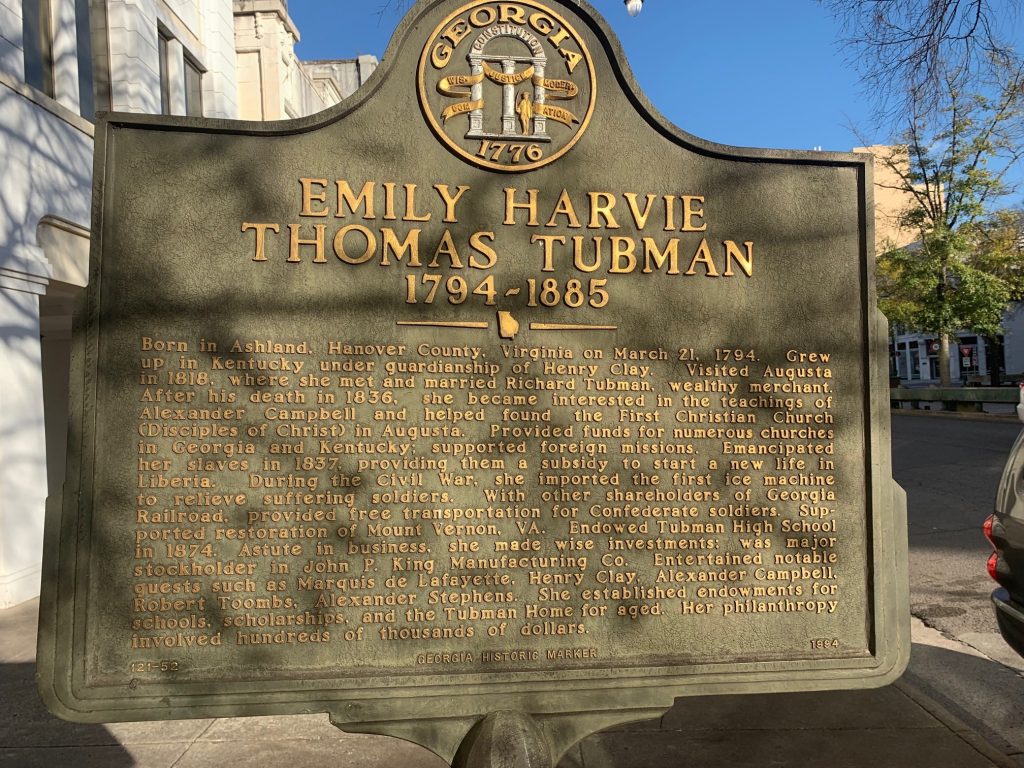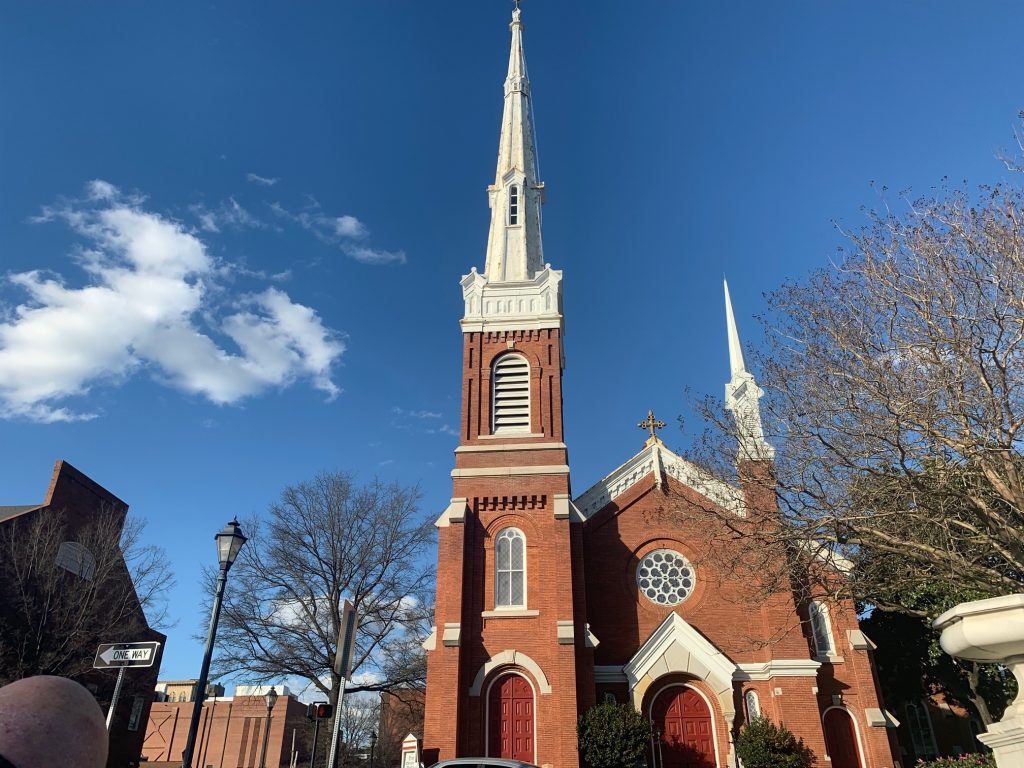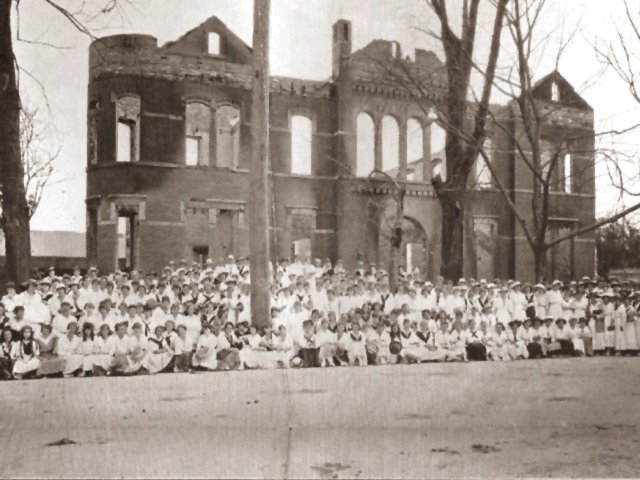Editor’s Note: March is National Women’s History Month
While her name adorns a school and a roadway, the life and times of Emily Tubman are largely unknown today, but in her own time, Tubman was a trailblazer and a shrewd businesswoman.
There was a rumor towards the end of the Civil War that President Lincoln was considering a plan, quite literally, to round up all of the former slaves and send them all back to Africa.
While Lincoln had always favored colonization plans involving sending free slaves either back to their home continent or to parts of the Caribbean and he joined the American Colonization Society long before he became president, such a plan at the end of the war was never seriously considered as there was no money left to launch such a scheme.
[adrotate banner=”71″]
However, decades before the war, in 1842, Tubman did just that, she freed her slaves and paid for them to start new lives in the African country of Liberia.
Tubman née Thomas was born March 21, 1794 in Virginia and met her future husband by chance on a visit to Augusta in 1818, according to Georgia Women of Achievement. She moved to Augusta to live once married to Richard Tubman, who was 28 years her senior. She soon found herself in a predicament.
Richard Tubman owned vast cotton-producing plantations, and Emily Tubman found herself in the same situation as Thomas Jefferson. Both believed in the abolition of slavery but were slave owners.

Unlike Jefferson, who never had the financial ability to free his slaves, even in death, Tubman was a pious Christian who lived well under her means. She and her husband began to concoct plans on how their slaves could eventually be freed.
The couple decided that upon Richard’s passing the slaves would be given their freedom. By waiting until his death, many of the laws in Georgia concerning the manumission of slaves could be skirted. As an added insurance policy, Richard Tubman’s will included a $10,000 gift to the University of Georgia.
Even though Augusta, at the time, had a large free Black population, state leaders were not keen on allowing more free Black people in Georgia, and the legislature politely declined the gift.
Tubman responded by freeing her slaves anyway. Dort of, that is, according to the late Augusta historian Ed Cashin.
[adrotate banner=”51″]
In 1842, Tubman gave her slaves a choice. They could remain and work for her as bondsmen or they could accept a one-way ticket to the African nation of Liberia where they would be free. Tubman also agreed to give her former slaves enough money to be able to start a new life in their new home.
According Cashin, around 70 slaves, roughly half of the number Tubman owned, agreed to take the deal and relocate.
Most of the newly freed slaves took on Tubman’s surname as a sign of respect, and today, the Tubman surname in Liberia is as common as the last name of Smith. Indeed, William Tubman, a descendant of the freed slaves, was Liberia’s longest serving president. He served from 1944 to 1971, according to the Augusta Museum of History.

Generally, the act of freeing a large slave population would spell bankruptcy for the former owner, but Tubman was very clever when it came to business. Convinced that Georgia’s reliance on “King Cotton” could potentially cause the state economy to crash, Tubman wisely moved her wealth out of the cotton industry.
Dr. Edward Cashin, a now-deceased former history department chair at Augusta University, called Tubman “a queen of industry as well as society” and a “benefactress extraordinary” in his book “The Story of Augusta.”
She was co-founder of the John P. King Manufacturing Co. and invested heavily in the Georgia Railroad.
Tubman’s foresight paid off and, according to Georgia Women of Achievement, Tubman not only doubled her wealth, but was wealthier than ever at the end of the Civil War, which decimated the cotton industry.
[adrotate banner=”20″]
In 1865, after the 13th Amendment was ratified, sharecropping took hold, and most former slave owners were financially destroyed.
When the issue of slavery was settled, Tubman turned her attention to providing schooling for girls at the high school level, which at the time was almost nonexistent.
According to The Augusta Chronicle archives, Tubman spent $12,000 to purchase a church building on Reynolds Street and promptly gave it to the Richmond County Board of Education to be used as a school for girls.
The original Tubman School burned in the Great Fire of 1916 and was replaced by the building on Walton Way that bears Tubman’s name to this day.

Tubman became widely known for her philanthropy and was a devout member of the Christian Church (Disciples of Christ). She donated the money for the construction of First Christian Church in Augusta, and she gave money to establish other churches in the denomination in other cities such as Frankfurt, Ky., Atlanta, Athens, Savannah and Sandersville, Ga. She donated money not only for the construction of churches but for the pastors’ salaries as well. She also gave money to colleges.
In 1994, the city of Augusta unveiled a monument celebrating the 200th anniversary of Tubman’s birth at the intersection of Greene and Seventh Streets.
…And that is something you might not have known.
Scott Hudson is the senior reporter for The Augusta Press. Reach him at scott@theaugustapress.com












